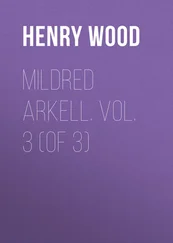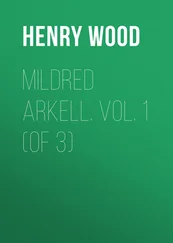Henry Wood - Trevlyn Hold
Здесь есть возможность читать онлайн «Henry Wood - Trevlyn Hold» — ознакомительный отрывок электронной книги совершенно бесплатно, а после прочтения отрывка купить полную версию. В некоторых случаях можно слушать аудио, скачать через торрент в формате fb2 и присутствует краткое содержание. Жанр: foreign_prose, literature_19, foreign_antique, на английском языке. Описание произведения, (предисловие) а так же отзывы посетителей доступны на портале библиотеки ЛибКат.
- Название:Trevlyn Hold
- Автор:
- Жанр:
- Год:неизвестен
- ISBN:нет данных
- Рейтинг книги:4 / 5. Голосов: 1
-
Избранное:Добавить в избранное
- Отзывы:
-
Ваша оценка:
- 80
- 1
- 2
- 3
- 4
- 5
Trevlyn Hold: краткое содержание, описание и аннотация
Предлагаем к чтению аннотацию, описание, краткое содержание или предисловие (зависит от того, что написал сам автор книги «Trevlyn Hold»). Если вы не нашли необходимую информацию о книге — напишите в комментариях, мы постараемся отыскать её.
Trevlyn Hold — читать онлайн ознакомительный отрывок
Ниже представлен текст книги, разбитый по страницам. Система сохранения места последней прочитанной страницы, позволяет с удобством читать онлайн бесплатно книгу «Trevlyn Hold», без необходимости каждый раз заново искать на чём Вы остановились. Поставьте закладку, и сможете в любой момент перейти на страницу, на которой закончили чтение.
Интервал:
Закладка:
"Latin and Greek, and mathematics, and–"
"But, George, where will be the good of such things to you?" cried Farmer Apperley, not allowing him to end the catalogue. "Latin and Greek and mathematics! What next, I wonder!"
"I don't see much good in giving a boy that sort of education myself," put in Mr. Chattaway, before any one else had time to speak. "Unless he is to take up a profession, the classics only lie fallow in the mind. I hated them, I know that; I and my brother, too. Many and many a caning we have had over our Latin, until we wished the books at the bottom of the sea. Twelve months after we left school we could not have construed a page, had it been put before us. That's all the good Latin did for us."
"I shall keep up my Latin and Greek," observed George, very independently, "although I may have to leave school."
"Why need you keep it up?" asked Mr. Chattaway, turning full upon George.
"Why?" echoed George. "I like it, for one thing. And a knowledge of the classics is necessary to a gentleman."
"Necessary to what?" cried Mr. Chattaway.
"To a gentleman," repeated George.
"Oh," said Mr. Chattaway. "Do you think of being one?"
"Yes, I do," repeated George, in tones as decisive as any ever used by his step-mother.
This bold assertion nearly took away the breath of Farmer Apperley. Had George Ryle announced his intention of becoming a convict, Mr. Apperley's consternation had been scarcely less. The same word bears different constructions to different minds. That of "gentleman" in the mouth of George, could only bear one to the simple farmer.
"Hey, lad! What wild notions have ye been getting into your head?" he asked.
"George," said Mrs. Ryle almost at the same moment, "are you going to give me trouble at the very outset? There is nothing for you to look forward to but work. Your father said it."
"Of course I look forward to work," returned George, as cheerfully as he could speak that sad afternoon. "But that will not prevent my being a gentleman."
"George, I fancy you may be somewhat misusing terms," remarked the surgeon, who was an old inhabitant of that rustic district, and a little more advanced than the rest. "What you meant to say was, that you would be a good man, honourable and upright; nothing mean about you. Was it not?"
"Yes," said George, after an imperceptible hesitation. "Something of that sort."
"The boy did not express himself clearly, you see," said Mr. King, looking round on the rest. "He means well."
"Don't you ever talk about being a gentleman again, my lad," cried Farmer Apperley, with a sagacious nod. "It would make the neighbours think you were going in for bad ways. A gentleman is one who follows the hounds in white smalls and scarlet coat, goes to dinners and drinks wine, and never puts his hands to anything, but leads an idle life."
"That is not the sort of gentleman I meant," said George.
"It is to be hoped not," replied the farmer. "A man may do this if he has a good fat balance at his banker's, but not else."
George made no remark. To have explained how very different his ideas of a gentleman were from those of Farmer Apperley might have involved him in a long conversation. His silence was looked suspiciously upon by Mr. Chattaway.
"Where idle and roving notions are taken up, there's only one cure for them!" he remarked, in short, uncompromising tones. "And that is hard work."
But that George's spirit was subdued, he might have hotly answered that he had taken up neither idle nor roving notions. As it was, he sat in silence.
"I doubt whether it will be prudent to keep George at home," said Mrs. Ryle, speaking generally, but not to Mr. Chattaway. "He is too young to do much on the farm. And there's John Pinder."
"John Pinder would do his best, no doubt," said Mr. Chattaway.
"The question is—if I do resolve to put George out, what can I put him to?" resumed Mrs. Ryle.
"My father thought it best I should remain on the farm," interposed George, his heart beating a shade faster.
"He thought it best that I should exercise my own judgment in the matter," corrected Mrs. Ryle. "The worst is, it takes money to place a lad out," she added, looking at Farmer Apperley.
"It does that," replied the farmer.
"There's nothing like a trade for boys," said Mr. Chattaway, impressively. "They earn a living, and are kept out of mischief. It appears to me that Mrs. Ryle will have expense enough upon her hands, without the cost and keep of George added to it. What good can so young a boy do the farm?"
"True," mused Mrs. Ryle, agreeing for once with Mr. Chattaway. "He could not be of much use at present. But the cost of placing him out?"
"Of course he could not," repeated Mr. Chattaway, with an eagerness which might have betrayed his motive, but that he coughed it down. "Perhaps I may be able to put him out for you without cost. I know of an eligible place where there's a vacancy. The trade is a good one, too."
"I am not going to any trade," said George, looking Mr. Chattaway full in the face.
"You are going where Mrs. Ryle thinks fit to send you," returned Mr. Chattaway, in his hard, cold tones. "If I can get you into the establishment of Wall and Barnes without premium, it will be a first-rate thing for you."
All the blood in George Ryle's body seemed to rush to his face. Poor though they had become, trade had been unknown in their family, and its sound in George's ears, as applied to himself, was something terrible. "That is a retail shop!" he cried, rising from his seat.
"Well?" said Mr. Chattaway.
They remained gazing at each other. George with his changing face flushing to crimson, fading to paleness; Mr. Chattaway with his composed leaden features. His light eyes were sternly directed to George, but he did not glance at Mrs. Ryle. George was the first to speak.
"You shall never force me there, Mr. Chattaway."
Mr. Chattaway rose from his seat, took George by the shoulder, and turned him towards the window. The view did not take in much of the road to Barbrook; but a glimpse of it might be caught sight of here and there, winding along in the distance.
"Boy! Do you remember what was carried down that road this afternoon—what you followed next to, with your younger brother? He said that you were not to oppose your mother, but obey her in all things. These are early moments to begin to turn against your father's dying charge."
George sat down, heart and brain throbbing. He did not see his duty very distinctly before him then. His father certainty had charged him to obey his mother's requests; he had left him entirely subject to her control; but George felt perfectly sure that his father would never have placed him in a shop; would not have allowed him to enter one.
Mr. Chattaway continued talking, but the boy heard him not. He was bending towards Mrs. Ryle, enlarging persuasively upon the advantages of the plan. He knew that Wall and Barnes had taken a boy into their house without premium, he said, and he believed he could induce them to waive it in George's case. He and Wall had been at school together; had passed many an impatient hour over the Latin previously spoken of; had often called in to have a chat with him in passing. Wall was a ten-thousand-pound man now; and George might become the same in time.
"How would you like to place Christopher at it, Mr. Chattaway?" asked George, his heart beating rebelliously.
"Christopher!" indignantly responded Mr. Chattaway. "Christopher's heir to Trev–Christopher isn't you," he concluded, cutting his first retort short. In the presence of Mrs. Ryle it might not be altogether prudent to allude to the heirship of Cris to Trevlyn Hold.
The sum named conciliated the ear of Mr. Apperley, otherwise he had not listened with any favour to the plan. "Ten thousand pounds! And Wall hardly a middle-aged man! That's worth thinking of, George."
Читать дальшеИнтервал:
Закладка:
Похожие книги на «Trevlyn Hold»
Представляем Вашему вниманию похожие книги на «Trevlyn Hold» списком для выбора. Мы отобрали схожую по названию и смыслу литературу в надежде предоставить читателям больше вариантов отыскать новые, интересные, ещё непрочитанные произведения.
Обсуждение, отзывы о книге «Trevlyn Hold» и просто собственные мнения читателей. Оставьте ваши комментарии, напишите, что Вы думаете о произведении, его смысле или главных героях. Укажите что конкретно понравилось, а что нет, и почему Вы так считаете.












